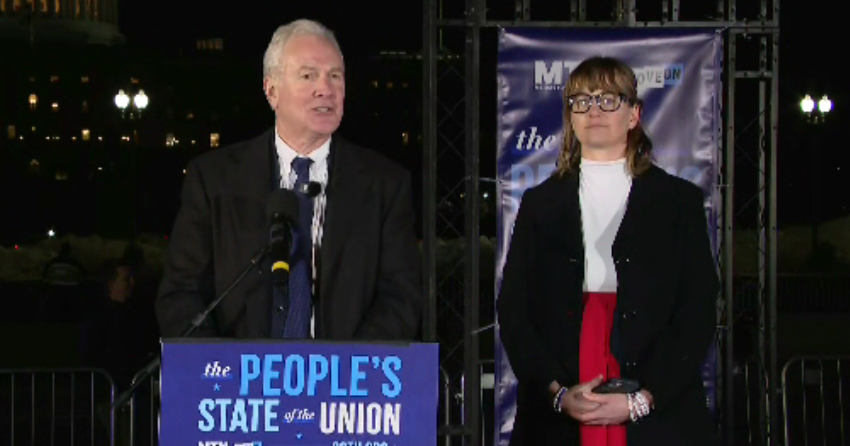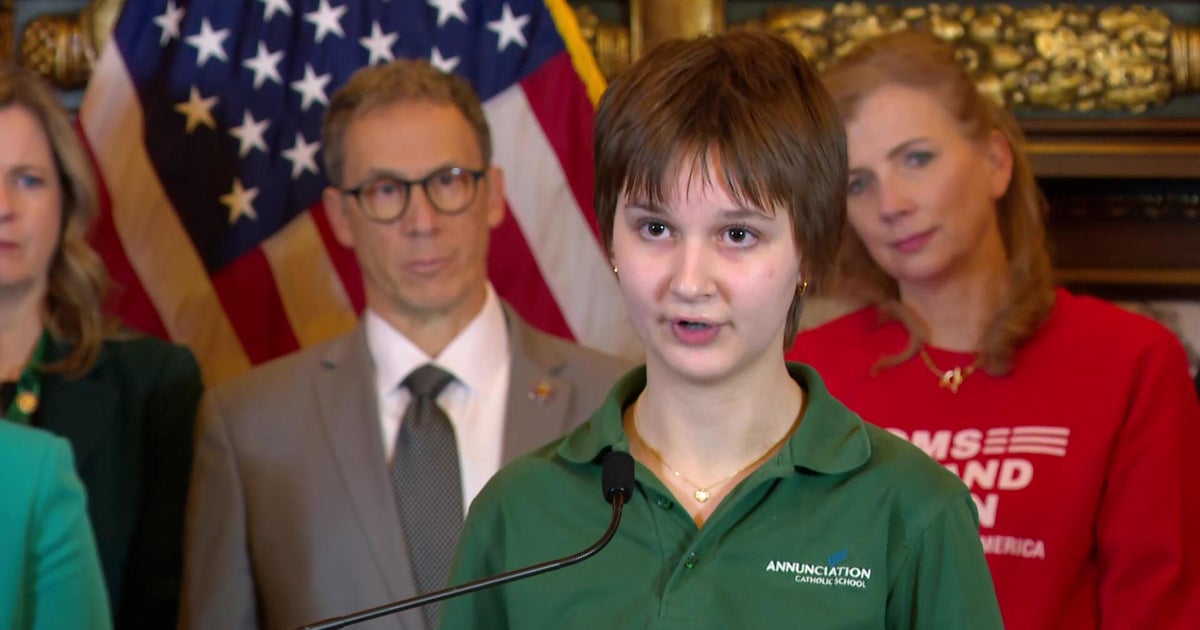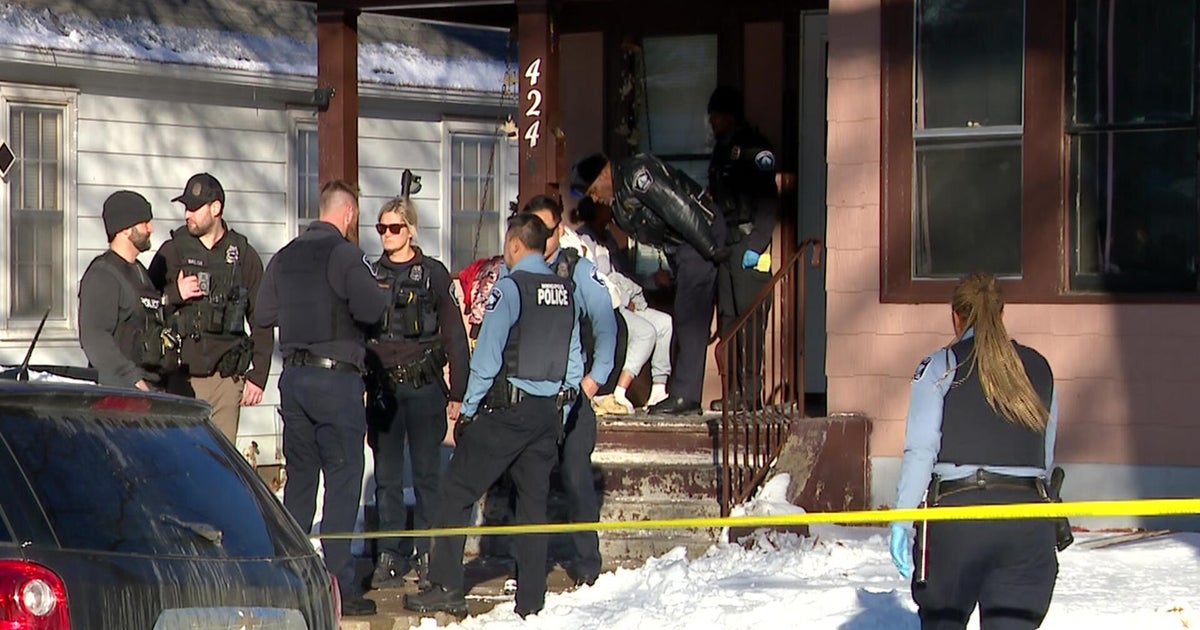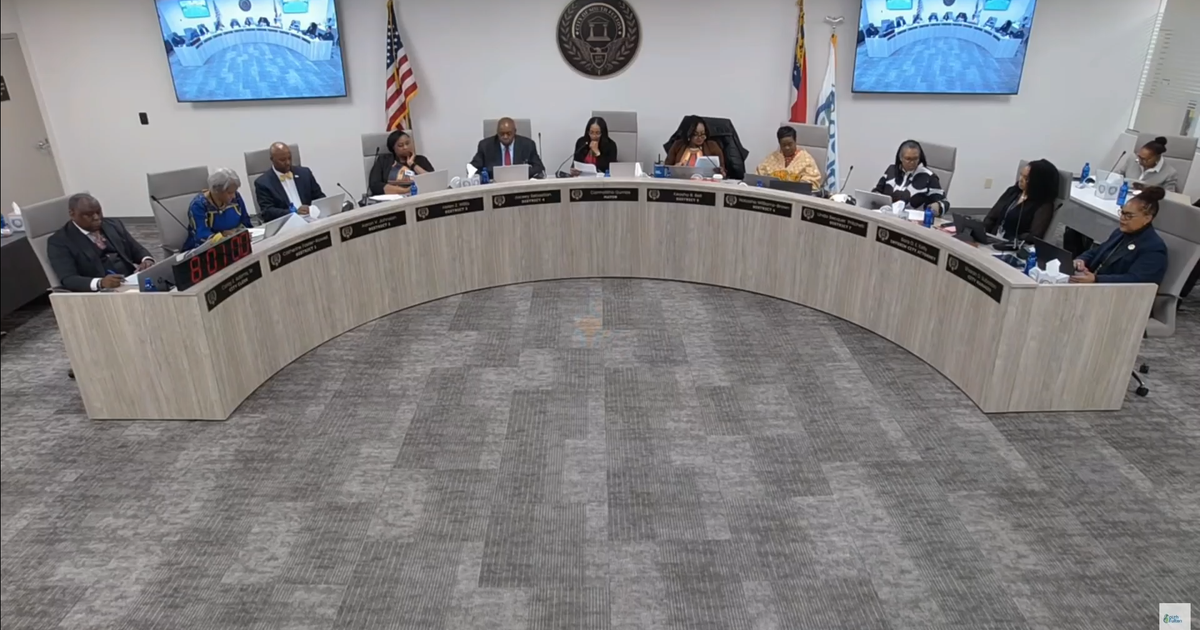Minn. Lawmakers To Take Up Silica Sand Mining Boom
MINNEAPOLIS (AP) — Critics of a booming silica sand mining industry will ask lawmakers to hit the pause button Tuesday when the Minnesota Legislature holds its first-ever hearing on a subject that has so far been left up to local governments.
Activists chartered two buses from southeastern Minnesota to the Capitol for a joint hearing of the Senate and House environment committees. They hope to convince legislators that sand mining is a regional issue that needs broader regulation than it now gets in Minnesota or neighboring Wisconsin, where the "sand rush" has been roaring for several years.
Their top goal is a hold on new mines, processing plants and transportation facilities so that Minnesota can do a broad study of the environmental, health and other effects of digging up silica sand and shipping it to the oil and gas fields of North Dakota and other states. The sand is a crucial component in hydraulic fracturing, a process also known as fracking, that has unlocked vast new energy supplies.
"The people of southeastern Minnesota will be delivering a clear message to legislators on Tuesday that we need a regional moratorium," said Jim Gurley of Winona Area Citizens Concerned About Silica Mining.
Industry representatives will be there to give their side. Mining and related companies have touted the hundreds of jobs they create and how they have helped the region cash in on the energy boom that hydraulic fracturing has helped create.
The hills and bluffs of western Wisconsin and southeastern Minnesota hold easy-to-mine deposits of highly pure silica sand with round grains that are the ideal size, shape and hardness for hydraulic fracturing. Drillers mix it with water and other chemicals and force it down wells to break rock formations and prop open the cracks so oil and gas can flow out.
Critics fear silica mining is a health threat. The documented dangers of workplace exposure to fresh silica dust include silicosis and lung cancer. Little research exists on whether residents downwind or along sand truck routes face similar risks. But the experience in Wisconsin — where the boom is well established in counties along the Mississippi River and in cities like Chippewa Falls — shows that mining operations generate heavy truck traffic that affects communities.
Sen. John Marty, D-Roseville and chairman of the Senate Environment and Energy Committee, said Tuesday's hearing is meant for lawmakers to get a clear idea who has authority over the industry and who's responsible for looking at the risks.
Opponents want a state-imposed moratorium to replace several local moratoriums that expire soon or have already expired. Gurley said that's important because the large-scale environmental study they're also seeking might take more than a year, so once the local roadblocks expire there will be little to stop the industry from moving ahead.
Bobby King, an organizer for the Land Stewardship Project, said local governments don't have the resources necessary to evaluate projects or conduct long-term monitoring that the Minnesota Pollution Control Agency could if it were involved. He cited a proposed huge processing plant near St. Charles, between Winona and Rochester.
"It's unreasonable for Winona County to regulate the pollution of the largest sand processing facility in North America," King said. "The PCA needs to be engaged with that. And they need to be engaged in saying if it's a project that should go forward."
Red Wing Mayor Dennis Egan, who's been criticized for taking a job as lobbyist with the new Minnesota Industrial Sand Council, said his members will tell the committees about their industry and how it's working with local communities. Egan said they're willing to meet rigorous environmental and worker health standards, and that there might be a role for the state to play. He declined to comment on demands for his recall over his alleged conflict of interest.
Sen. Matt Schmitt, D-Red Wing, plans to introduce some of the legislation Marty's committee will consider when it reconvenes the following week and said it will be shaped by the hearing.
"I don't consider myself to be pro or anti. I'm pragmatic," Schmitt said. "Silica sand mining is moving into southeastern Minnesota. It's a great resource, but we have to be very careful and take the time to get this right."
(© Copyright 2013 The Associated Press. All Rights Reserved. This material may not be published, broadcast, rewritten or redistributed.)







